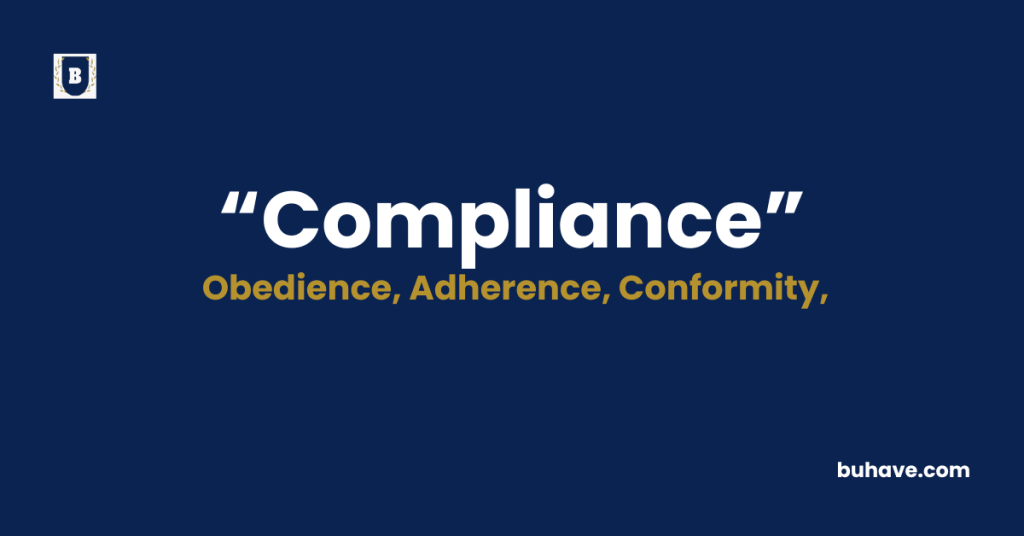The word Compliance (Noun) refers to the act of conforming to rules, standards, or authority. In this guide, you’ll learn the full definition, synonyms, antonyms, etymology, and real-life examples of how to use Compliance correctly in sentences.
Compliance Explained in Depth
A complete and detailed guide to the word Compliance including meaning, definition, examples, etymology, synonyms, and antonyms.
Meanings of Compliance
Compliance means following rules, laws, guidelines, or directions from an authority or system. It often appears in legal, corporate, and healthcare environments, where regulations are strictly observed.
Definition
Compliance refers to the act or process of adhering to rules, policies, or standards set by an external body or authority. In business, it ensures that an organization aligns its operations with laws or ethical guidelines. In medicine, it can describe how well a patient follows prescribed treatment plans. While the term generally implies obedience and order, it can also carry concerns about blind conformity when critical thinking is absent. In data privacy, financial regulations, and occupational safety, compliance ensures responsibility and accountability. Individuals or groups may comply willingly or due to obligation, but the result remains the same—alignment with external expectations. This term plays a key role in ethics, structure, and trust within systems of all kinds.
Etymology
The word “compliance” stems from the Latin verb complere, meaning “to fill up” or “to accomplish.” Over time, the root evolved through the Old French word complier, eventually forming “comply” in Middle English. The noun “compliance” began to appear in the 17th century. It originally conveyed a sense of fulfillment or yielding, often linked to courteous or willing behavior. As legal systems and regulatory environments became more complex, the term took on a more institutional tone. In the modern era, “compliance” is commonly associated with laws, procedures, and accountability frameworks. Despite its formal associations, the concept still retains a human element—it involves choice, behavior, and interaction with rules. Its history reflects a shift from polite agreement to structured responsibility.
Example Sentences
- The company updated its policies to improve legal compliance.
- Patient compliance is essential for the treatment to be effective.
- Compliance with safety standards protects both workers and the public.
Compliance Synonyms
- Obedience
- Adherence
- Conformity
- Observance
- Submission
- Agreement
- Consent
- Accord
- Acquiescence
- Responsiveness
Compliance Antonyms
- Defiance
- Rebellion
- Resistance
- Disobedience
- Nonconformity
- Opposition
- Rejection
- Refusal
- Insubordination
- Neglect
FAQs about Compliance
Here are some frequently asked questions (FAQs) about the word “Compliance”
1. What does compliance mean in business?
It means following legal rules, industry regulations, and internal policies to ensure ethical and lawful conduct.
2. Is compliance always voluntary?
No. It may be required by law, contract, or professional guidelines.
3. Why is compliance important in healthcare?
It ensures patient safety, protects privacy, and improves treatment outcomes.
4. What is compliance training?
It teaches employees how to follow rules and standards relevant to their roles or industries.
5. Can compliance apply to personal behavior?
Yes. Individuals also show compliance by following rules, etiquette, or agreed-upon responsibilities.

















